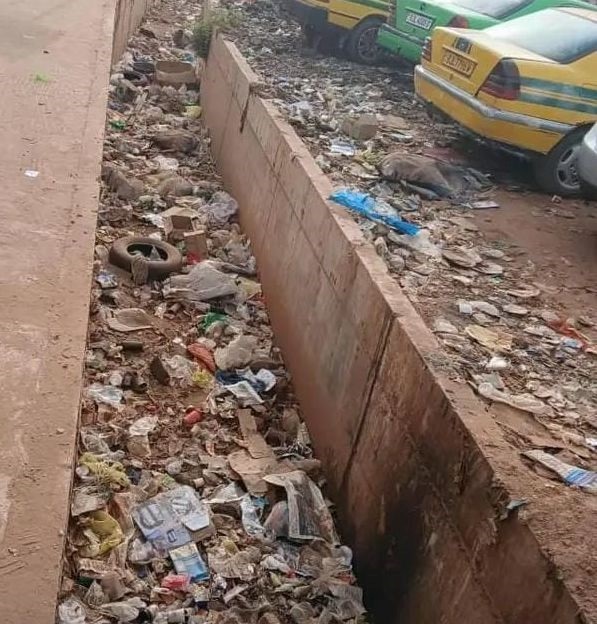By Nelson Manneh
The National Roads Authority (NRA) says it spends up to GMD 7 million annually on drainage cleaning operations across The Gambia, yet the impact remains limited as poor waste disposal practices and logistical delays continue to undermine the effort.
Speaking to this reporter, Mr. Anthony Keita, Senior Operations and Safety Manager at the NRA, disclosed that the cost of cleaning drains—particularly along the Trans-Gambia Highway—has risen from GMD 5 million to GMD 7 million in recent years. He said the projected budget for 2025 is GMD 7 million, covering nationwide de-silting, waste transport, and disposal. However, the agency’s strategy has come under scrutiny following recent off-season rains that washed extracted sludge back into the gutters, reversing earlier progress.
“The whole point of the cleaning is to allow for the free flow of water during the rainy season,” Keita explained. “But when waste is dumped into drains by the public, or the cleaned sludge is left roadside for days, it defeats the entire purpose.”
Residents and commuters have long complained that the sludge removed from drains is often left to rot on sidewalks for weeks, creating health hazards and obstructing movement. “It stinks, it breeds mosquitoes, and when it rains, it all goes back into the drains,” said Ansumana Daffeh, who runs a mini-market along the Westfield–Brikama Highway.
Almamo Kujabi, another concerned resident, noted that workers are often seen cleaning the drains without protective gear or trucks to immediately dispose of the waste. “The mud just sits there, and when it rains heavily, it’s all swept back in. Slabs are left open, and people—especially the visually impaired—risk falling in,” Kujabi said.
The problem isn’t unique to The Gambia. Drainage maintenance strategies differ worldwide, with wealthier countries using advanced machinery, while The Gambia relies primarily on manual labour through contracted local workers. But delays in removing the waste stem largely from poor logistics. Contractors hired by the NRA often face difficulties in securing trucks for swift disposal, according to Keita.
He said the NRA is now coordinating more closely with municipal councils to ensure timely collection and proper disposal of waste. “We are aware of all the concerns, particularly along the newly built Bertil Harding Highway. A dedicated team will be deployed by the end of June 2025, ahead of the peak rainy season,” he assured.
But frustrations continue to mount. Some vendors, blamed for dumping waste into drains, argue they have no alternatives. “We don’t have dustbins. If the government provided bins and enforced laws, people would follow,” said Naffie Cham, a roadside vendor.
Keita admitted that early cleaning attempts are often undermined by illegal dumping, forcing the authority to schedule cleaning closer to the rains. “Cleaning the same drains twice a year is not financially sustainable,” he emphasised, adding that the cleaning was supposed to be completed by April, but the risk of re-pollution caused delays.
The Authority also urges heavy-duty truck drivers to avoid running over drainage slabs. “These covers aren’t designed for such weight and often break, posing risks to both vehicles and pedestrians,” he said.
A recent NRA assessment found multiple damaged slabs along the Brikama Highway. Keita said a replacement plan has been finalized, with priority given to the most hazardous points.
Ultimately, Keita stressed the need for collective responsibility. “If we continue using drains as garbage dumps, the millions we spend annually will mean nothing,” he warned.




















